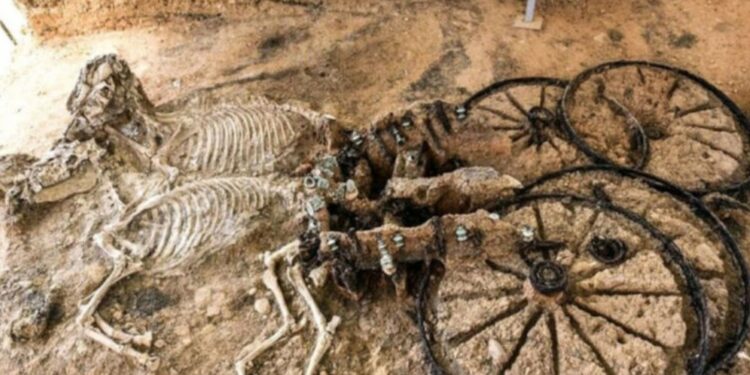A team of archaeologists led by Veselin Ignatov from the Istoricheski Musej Nova Zagora museum in Bulgaria has unearthed the remains of a 2000 year-old wooden chariot in the Karanovo archaeological complex in Bulgaria.
The chariot was discovered covered in bronze, with parts of it depicting scenes from Thracian mythology. The age of the chariot makes it difficult to see the images on it.
The team has estimated that the chariot is around 1800 to 2000 years old. The chariot has four large wheels with a diameter of 1.2 meters, which are silver-plated and decorated with small figures of the god Eros. Bones of two horses and a dog were also found near the chariot.
The discovery of the chariot is significant as it provides insight into the culture and lifestyle of the Thracian people who lived in Bulgaria during ancient times. The Thracians were known for their horsemanship, and the discovery of the chariot and the bones of horses indicates the importance of horses in their culture.
The Karanovo archaeological complex in Bulgaria is a significant site for archaeologists, as it has yielded many important discoveries from the Neolithic and Chalcolithic periods. The discovery of the chariot adds to the rich history of the area and is a testament to the importance of the region in ancient times.
The discovery of the 2000 year-old wooden chariot has been met with excitement by archaeologists and historians, who are eager to learn more about the culture and lifestyle of the Thracian people. The team plans to continue their excavation work at the Karanovo archaeological complex in the hopes of uncovering more important artifacts and shedding more light on the history of the region.



















Discussion about this post